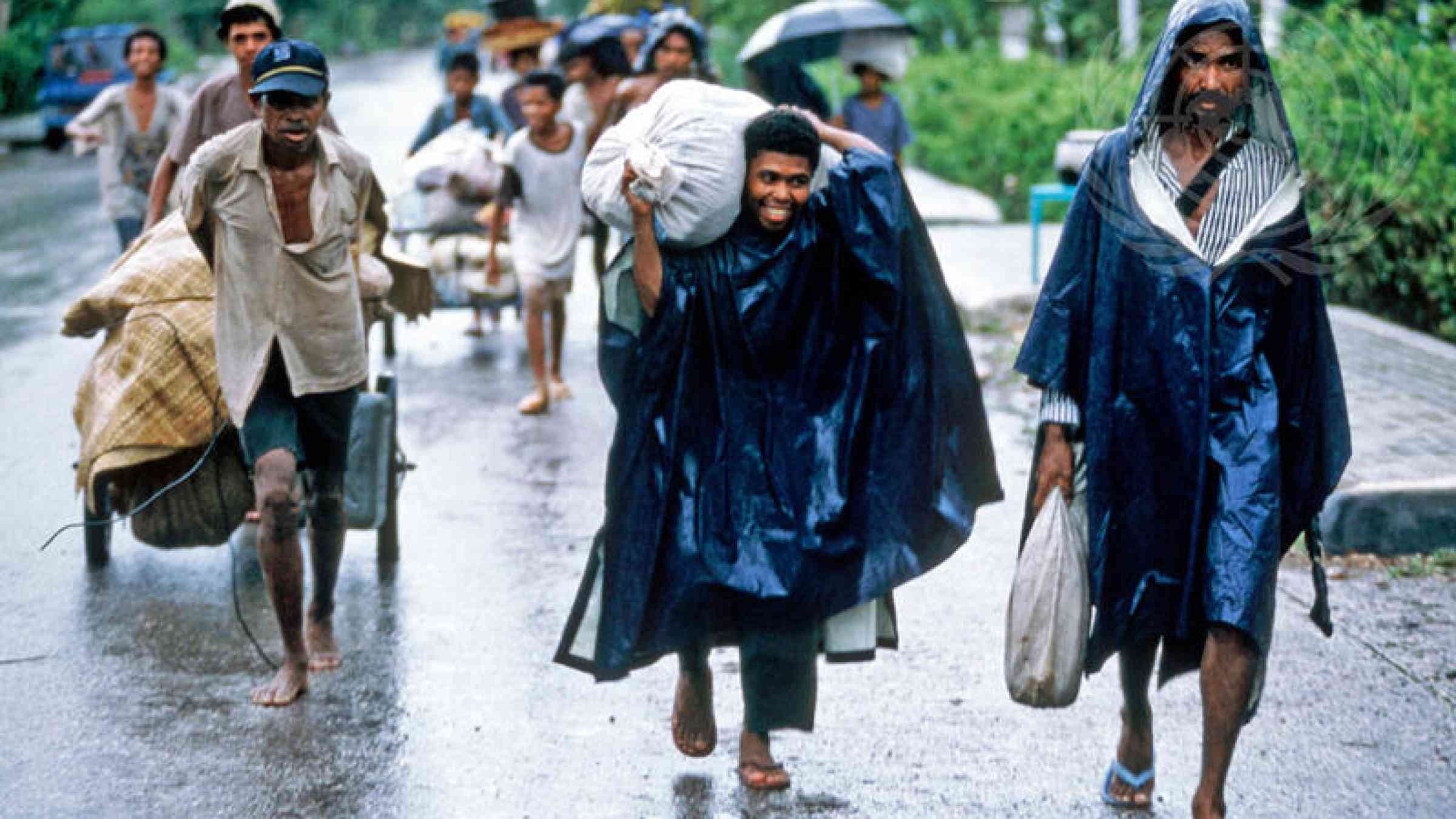Strengthening Governance to Reduce Disaster Displacement Risks
Each year, around the world, millions of people become displaced from their homes in the context of disasters and the adverse effects of climate change – more than 30 million in 2020 alone. The accelerating impacts of climate change on the intensity and frequency of weather events and conditions in many regions are adding to, and amplifying risks for, people at risk of becoming displaced in the context of disasters, as well as people already living in displacement.
This session will address the issue of disaster displacement and the reduction of related risks through strengthening governance. It will explore the need for a robust evidence base, as well as the importance of integrating DRR with human rights, humanitarian, development, climate action and human mobility planning. It will also showcase examples of effective practices across regions, and the tools available to help DRR stakeholders in strengthening risk governance.
Session objectives
This session will discuss data and governance, and specifically the inclusion of disaster displacement in DRR strategies and policies, as well as the integrated implementation of these strategies and policies. It will:
- Explore the challenges and opportunities for disaster displacement monitoring, data collection and analysis
- Encourage coherence across related policy areas for more effective governance
- Promote good practices for governance (both policies and activities) from various regions
- Highlight relevant international standards and guidance on displacement of relevance for DRR
- Encourage the use of the Words into Action guide on disaster displacement in developing or strengthening DRR strategies and policies.
Moderator
- Sarah Charles - Assistant to the Administrator, United States Agency of International Development
Speakers
- Doctor Luísa Celma Meque - President of the National Institute for Disaster Risk Reduction and Management (INGD) of the Government of Mozambique
- Saut Sagala - Senior Lecturer, School of Architecture, Planning, and Policy Development, Institut Teknologi Bandung
- Hindou Oumarou Ibrahim - Indigenous Chadian community of pastoralists
- Crispin d'Auvergne - Director, Climate and Disaster Resilience, Organisation of Eastern Caribbean States
- Esline Garaebiti - Director General, Ministry of Climate Change Adaptation, Meteorology, Geo-Hazards, Environment, Energy and Disaster Management, Vanuatu
- Luis Doñas - Foreign Affairs Liaison, National Emergency Office, Chile
Experience this event
Watch the session
Documents
Learn more
What do you need to know about disaster displacement and the links between climate change, disaster risk reduction, data and governance in advance of this session?
Where do we stand?
The exposure and vulnerability of persons to disaster displacement is multicausal and driven by political, social and economic factors, among others, and exacerbated by the COVID-19 pandemic. To avoid the negative impacts of disaster displacement, risk governance must be strengthened. It needs to be evidence-based and place at-risk or affected communities at the center of action; this includes displaced people and communities in their areas of return, refuge or alternative settlement. It needs to draw on Human Rights standards, and existing guidance such as the Guiding Principles on Internal Displacement and Durable Solutions Frameworks.
Effective and comprehensive responses to the risks of disaster displacement are required at all levels, but challenges include:
- Weak or insufficient governance;
- Gaps in data and evidence and barriers to its effective use to inform governance;
- Coordination challenges to the integrated implementation of DRR with other policy areas such as human rights, humanitarian action, sustainable development, climate action and human mobility;
- Insufficient capacity at all levels to address disaster displacement coherently.
However, there are tools and existing effective practices to take guidance and learn from, which include:
- The Words into Action Guidelines, Checklist and eLearning;
- International standards and guidance on displacement of relevance for human mobility and DRR;
- Experiences and learnings from the local, national and regional levels where specific stakeholders’ commitments will be presented at this event.
Session guiding questions
- In what ways can data strengthen governance, and what are the key challenges?
- Why is it important to ensure coherence between DRR and other policy areas?
- How can the Words into Action Guidelines, Checklist and eLearning support the inclusion of disaster displacement into DRR strategies and policies?
- How can we ensure meaningful and inclusive participation of those affected by, or at risk of displacement, in data collection and governance?

Agenda
Location
BNDCC 2-Ground Floor
Online access
Interpretation
AR, EN, FR, RU, ES, ZHDetails
Contact
Christel Rose, [email protected] Momoko Nishikawa, [email protected]